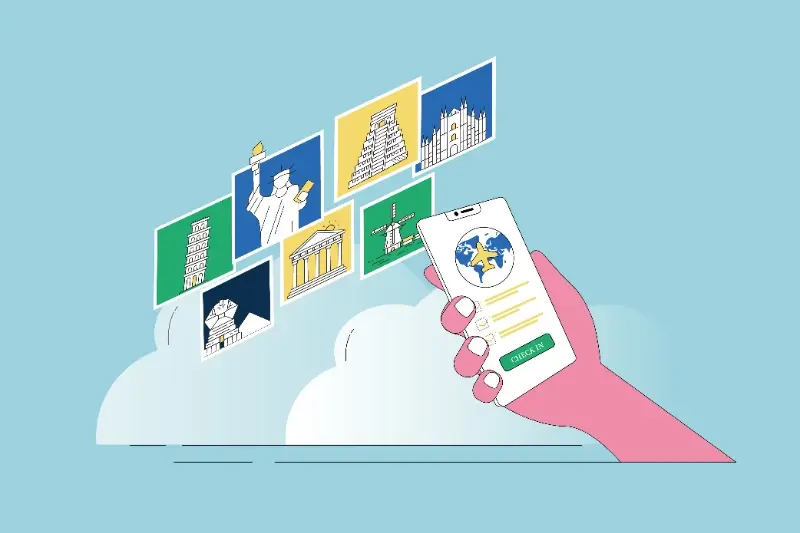Location Privacy Laws Every App Developer Must Know Before Launch
Building mobile apps that collect location data has become second nature for most developers—but the legal side of things? That's where it gets tricky. Over my years working with app developers, I've watched countless projects hit unexpected roadblocks when they realise they haven't properly addressed location privacy laws. What seemed like a straightforward feature suddenly becomes a compliance nightmare that can delay launches by months.
Location data isn't just any old piece of information; it's one of the most sensitive types of personal data you can collect. Think about it—your GPS coordinates reveal where you live, work, shop, and spend your free time. Regulators around the world have cottoned on to just how revealing this data can be, and they've responded with increasingly strict laws that govern how apps can collect, store, and use geolocation information.
The days of simply adding location tracking without considering the legal implications are long gone—privacy regulations now treat location data as some of the most sensitive information an app can collect
From GDPR in Europe to state-level privacy laws in America, the regulatory landscape for location data has become incredibly complex. Different regions have different rules, different penalties, and different requirements for user consent. What makes this particularly challenging is that many apps operate globally, meaning developers need to comply with multiple sets of regulations simultaneously. Getting it wrong isn't just about facing fines—though those can be substantial—it's about maintaining user trust and avoiding the kind of negative publicity that can kill an app before it even gets started.
Understanding Location Data Laws
Location data is exactly what it sounds like—information about where your app users are or have been. This includes GPS coordinates, IP addresses, Wi-Fi network names, and even Bluetooth beacons. When your app collects this type of data, you're stepping into a heavily regulated area that lawmakers around the world take very seriously.
The reason location data gets special attention is simple: it's incredibly personal. Think about it—your location history reveals where you live, work, shop, and spend your free time. It can show your daily routines, your relationships, and even your health conditions if you regularly visit certain medical facilities. That's why privacy laws treat location data as sensitive personal information that needs extra protection.
What Counts as Location Data
You might be surprised by how many different ways your app can collect location information. It's not just when users tap "share my location"—there are loads of sneaky ways this data gets gathered:
- Precise GPS coordinates from the device
- Cell tower triangulation data
- Wi-Fi network information and signal strength
- IP address geolocation
- Bluetooth beacon proximity data
- Photos with embedded location metadata
- Check-ins at venues or businesses
Why Compliance Matters
Getting location privacy wrong isn't just bad for your users—it can destroy your business. Regulators have the power to issue massive fines, force you to shut down certain features, or even ban your app entirely from app stores. Beyond the legal risks, privacy violations absolutely destroy user trust, and once that's gone, it's nearly impossible to get back.
The good news? Most location privacy laws follow similar principles: be transparent about what you're collecting, get proper consent, and give users control over their data. Master these basics, and you're well on your way to compliance.
GDPR and Location Privacy Requirements
The General Data Protection Regulation has completely changed how we handle location data in mobile apps—and frankly, it's about time. If your app collects any form of geolocation data from users in the EU, you need to follow these rules regardless of where your company is based. That's the thing about GDPR mobile app compliance; it doesn't care if you're in San Francisco or Sydney.
Location data falls under the category of personal data, which means users must give explicit consent before you can collect it. Gone are the days of burying location permissions deep in your terms and conditions. You need clear, understandable language that explains exactly what you're collecting and why.
Key GDPR Requirements for Location Data
- Obtain explicit consent before collecting any GPS or location information
- Provide users with the right to withdraw consent at any time
- Allow users to access, correct, or delete their location data
- Implement data minimisation—only collect what you actually need
- Store location data securely and delete it when no longer required
- Notify authorities of data breaches within 72 hours
Always implement granular location permissions in your app. Let users choose between 'always', 'when using app', or 'never' options, and respect their choice completely.
The penalties for getting this wrong aren't trivial either. GDPR fines can reach up to 4% of your annual global revenue or €20 million, whichever is higher. But beyond the financial implications, protecting user privacy should be at the heart of every app development project. Users are becoming more privacy-conscious, and respecting their data choices builds trust that translates into better user retention and positive reviews.
US State Privacy Regulations
The United States doesn't have one big privacy law that covers the whole country—instead, individual states are creating their own rules. California led the way with the California Consumer Privacy Act (CCPA) and its newer version, the California Privacy Rights Act (CPRA). These laws give people the right to know what personal information apps collect about them, including location data.
Under California's rules, you need to tell users exactly what location information you're collecting and why you need it. Users can also ask you to delete their data or stop selling it to other companies. The fines can be quite hefty if you get it wrong—we're talking thousands of dollars per violation.
Other States Following Suit
Virginia, Colorado, and Connecticut have passed similar laws, with more states joining all the time. Each state has slightly different rules, which makes things tricky for app developers. Some states require you to get permission before collecting location data; others let you collect it but give users the right to opt out later.
The key thing to remember is that if your app can be downloaded by someone in these states, you need to follow their rules—even if your company is based somewhere else entirely. This is what lawyers call "long-arm jurisdiction" and it means state privacy laws can reach you wherever you are.
What This Means for Your App
You'll need clear privacy notices explaining your location data practices, easy ways for users to control their data, and systems to handle user requests. The good news? If you design your app to meet California's standards, you'll likely be covered for most other state laws too.
Children's Location Data Protection
When it comes to children's data, privacy laws become much stricter—and for good reason. Kids don't have the same understanding of privacy risks that adults do, which means they need extra protection. If your app might be used by children under 13, you need to follow special rules about collecting location information.
In the United States, COPPA (Children's Online Privacy Protection Act) requires parental consent before you can collect any personal information from children under 13. This includes GPS data, which is considered highly sensitive. You can't just ask a child to tick a box saying they agree—you need actual permission from their parent or guardian. The process isn't simple either; you need verifiable parental consent, which might involve phone calls, credit card verification, or signed forms.
Getting Parental Permission Right
The consent process must be clear about what location data you're collecting and why you need it. Parents should understand exactly how their child's location will be used, stored, and shared. Many apps make the mistake of burying this information in lengthy terms of service—but that won't cut it for children's apps.
Children deserve the highest level of privacy protection, especially when it comes to their physical whereabouts and daily movements
Even if you get proper consent, you still need to limit data collection to what's absolutely necessary for your app's function. You can't collect location data "just in case" you might need it later. The rules also require you to delete children's data when it's no longer needed, and parents must have the right to review and delete their child's information at any time.
Global Privacy Standards
Location privacy isn't just about GDPR or California's privacy laws—there's a whole world of regulations out there that could affect your app. And trust me, ignoring them isn't an option if you want to launch globally.
Canada's Personal Information Protection and Electronic Documents Act (PIPEDA) requires clear consent for location tracking, much like GDPR but with its own specific requirements. Brazil's Lei Geral de Proteção de Dados (LGPD) came into force recently and takes a strict approach to location data—treating it as sensitive personal information that needs extra protection.
Asia-Pacific Considerations
Australia's Privacy Act has been updated to include stronger location privacy protections, and the penalties for breaches are substantial. Singapore's Personal Data Protection Act requires organisations to get consent before collecting location data and gives users the right to withdraw that consent at any time.
Japan has its own Personal Information Protection Act that's quite detailed about location tracking—particularly when it comes to children and vulnerable users. South Korea goes even further with its Location Information Protection Act, which specifically targets apps that collect location data.
Emerging Markets and Compliance
What's interesting is how quickly these laws are evolving. Countries that didn't have comprehensive privacy legislation just a few years ago are now implementing strict rules. India's upcoming data protection law will likely include specific location privacy requirements, and several African nations are developing their own frameworks.
The key thing to remember is that these laws often apply to you even if your company isn't based in that country—if users from those regions download your app, you might need to comply with their local regulations.
Best Practices for Compliance
Getting location privacy compliance right doesn't have to be complicated, but it does require a systematic approach. The key is building privacy protection into your app from day one rather than trying to bolt it on later—trust me, retrofitting privacy controls is much harder than getting them right the first time.
Consent Management
Your consent system needs to be crystal clear about what location data you're collecting and why. Skip the legal jargon; use plain English that explains exactly how GPS data helps improve the user experience. Make sure users can easily change their minds too—consent isn't a one-time thing, and people should be able to withdraw it whenever they want.
Data minimisation is your friend here. Only collect the location information you actually need for your app's core features. If you're building a weather app, you probably don't need to store location history for months on end. Collect what you need, use it for its intended purpose, then delete it when it's no longer required.
Technical Safeguards
Encrypt location data both when it's stored on the device and when it's transmitted to your servers. Use secure APIs and keep your data processing systems updated with the latest security patches. Regular security audits aren't just good practice—they're often required by data protection laws. Implementing mobile app data security measures from the start is crucial for both compliance and user trust.
Create a privacy impact assessment before you start development. This document helps you identify potential privacy risks early and shows regulators you've taken geolocation compliance seriously from the start.
Document everything: your data collection practices, retention periods, and deletion processes. Having clear records makes compliance audits much smoother and demonstrates you're taking mobile app legal requirements seriously. Consider studying examples like the InstaAgent security failures to understand what happens when privacy protections fall short.
Conclusion
Location privacy laws aren't going anywhere—they're only getting stronger and more detailed. What started with basic data protection rules has grown into comprehensive frameworks that cover every aspect of how apps collect, store, and use location information. The GDPR set the tone, but now we're seeing similar regulations pop up across different countries and states, each with their own specific requirements.
Building compliance into your app from day one is far easier than trying to retrofit it later. Trust me on this one! The technical changes needed to meet privacy requirements can be significant, and they often affect core functionality. Getting location permissions right, implementing proper data minimisation, and setting up transparent user controls—these aren't afterthoughts you can bolt on at the end.
Children's data protection deserves special attention here. The rules are stricter, the penalties can be severe, and the reputational damage from getting it wrong is something most businesses never recover from. If your app might attract users under 13, or under 16 in some jurisdictions, you need to plan for that from the start.
The good news? Users actually appreciate apps that handle their privacy well. Clear explanations about why you need location data, granular controls that let people choose what to share, and transparent privacy policies build trust. That trust translates into better user retention and positive reviews—something every app developer wants.
Location privacy compliance isn't just a legal checkbox; it's a competitive advantage when done properly.
Share this
Subscribe To Our Blog
You May Also Like
These Related Stories

Data Protection Licensing: GDPR Impact on App Permissions

International App Distribution: Navigating Licensing Laws





